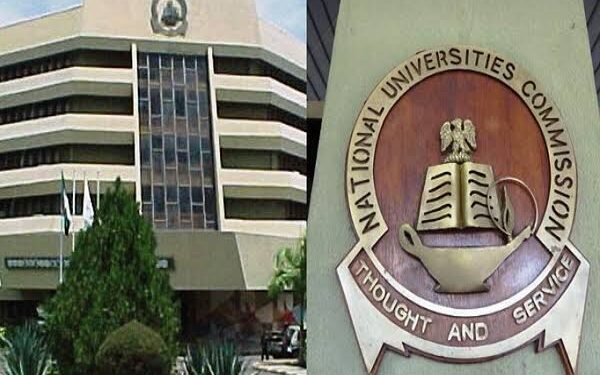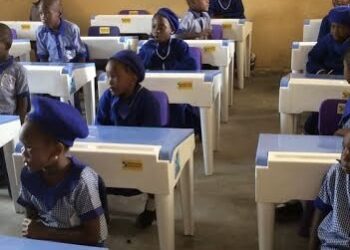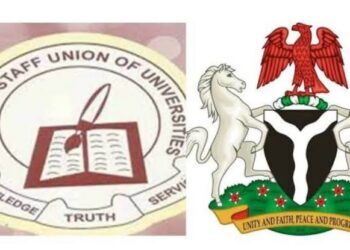Determined to continue with its advocacy aimed at improving the quality of infrastructure in public universities across the country for enhanced teaching and leaning, a Non-Governmental Organization (NGO), Education Advancement Initiative (EAI), has called for immediate release of 600 billion Naira this year as revitalization fund for the public universities in Nigeria .
According to the group said the timely release of the funds will ensure that deteriorating infrastructure at the universities campuses are rehabilitated, as well as pay the outstanding liabilities to members of the Academic Staff Union of Universities,(ASUU), and the Non-Academic Staff Union of Universities (NASU), among others, to forestall disruption of academic calendar by the unions.
The group, which also accused government officials of clandestinely plotting to destabilize public universities in favor of privately owed which they have vested interest, decried the non-release of N300 billion universities revitalization fund captured in the 2023 Appropriation Act, but was not accessed due to the failure on the part of the Office of the Accountant General of the Federation to release the monies to the benefiting institutions, insisting that the N300 billion provided for in the 2023 appropriation Act be roll -over and anther N 300 billion for 2025 be release this year to carter for the long neglect which the university system has suffered.
Director, Programme, Education Advancement Imitative , Dr. Abimbola Tobi, who spoke to newsmen over the weekend in Abuja, blamed government functionaries, particularly officials of the Ministry of Finance and the Accountant General’s Office, of a deliberate plot to sabotage public university education and promote private ones which they owed or have vested interest in.
Tobi, said lack of funding of public universities by successive governments portends grave danger to nation development.
He said, hence the same government failed to release the 2023 funds in 2024, it will only be proper and just that both 300 billion for 2023 be roll- over and another N300 Billiton for 2025 be release amounting to N600 billion as total releases for this year.
Dr. Tobi, advised the federal government to provide a special emergency fund to tackle this problem ,instead of waiting for an envelop budgetary system .
According to him, due to long time neglect, infrastructure at the public universities have decayed so much that only the release of 2023 and 2025 amounting to 600 billion will be reasonable to complete ongoing projects and under take new ones.
“”We urged the federal government to pay at least. 2 tranches of 2023 and 2025 for meaning projects to be carried out. “”
He stated that the refusal of the government to release the university revitalization fund is gradually killing public universities, adding that infrastructure that could aid teaching and learning has become an eyesore in almost all the universities in Nigeria.
He said, if public university education is allowed to collapse by way of government lukewarm attitude to funding, the country will suffer dire consequences as there would be increased crime rate precipitated by joblessness and lack of skill to engage in productive ventures by the young population.
Tobi, a trained educational programme specialist , insisted on the release of the revitalization fund and called on President Bola Ahmed Tinubu to quickly save the university system by directing the AG’s office to release the N600 billion captured in 2023 and 2025 budget to universities.
According to him, the Tinubu-led Administration’s Student Loan Scheme will amount to nothing, should the infrastructure decay in the nation’s citadel of learning remain unattended.
The EAI official insisted on the implementation of the 2009 agreement between the Federal Government and then ASUU on Needs Assessment programme.
According to him, the organisation recent interaction with indicates that ASUU is deeply angered by the failure of the Federal Government to honour the 2009 Needs Assessmenu agreement aimed at providing N220 billion annually as an intervention fund for the revitalization of public universities in Nigeria.
He warned the president against abandoning the needs assessment scheme designed to provide funds for the reinvigoration of public universities, particularly rehabilitation of decaying infrastructure as well as the provision of state-of-the-art teaching and learning equipment to the schools.
He appealed to the president to cause the immediate release of funds for the continuation of critical projects in the institutions being executed under the nerds assessment project.
According to him, the university community anxiously awaits the commencement of the projects.
Tobi advised the president whom he acknowledged has made significant statements towards revamping the education sector to release funds for the projects to ensure stable and quality academic environment.
It would be recalled that the Federal Government in 2009 reached an agreement with ASUU for the provision of 1.3 trillion on annual tranches of N220 billion over a period of 5 years as intervention funds for the revitalization of universities.
A review of the agreement was done in 2014. However, it is yet to be implemented resulting in several industrial actions by ASUU which distorts academic calendar in the ivory tower.
Our investigation revealed that officials of the Federal Ministry of Education are making frantic efforts to prevent any form of strike action under the Tinubu led government but the Office of the Accountant General of the Federation is yet to show concern in addressing the matter.











